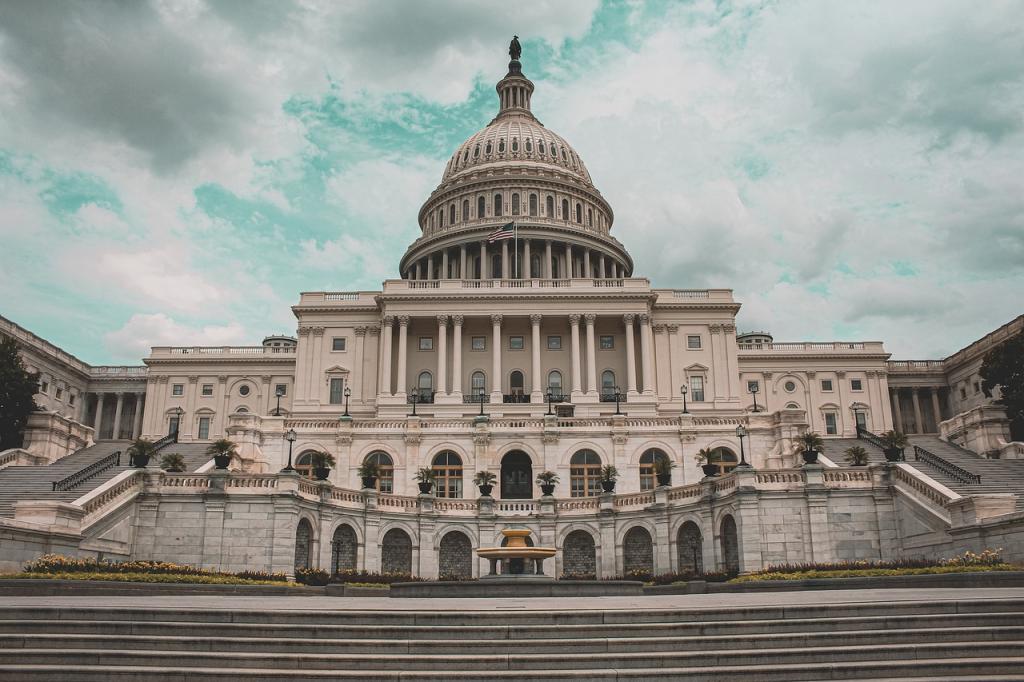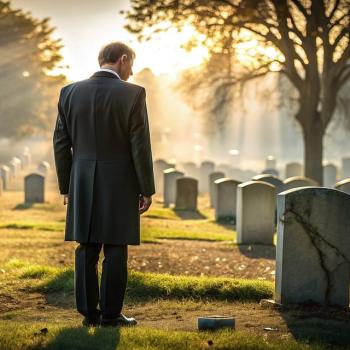The government has to be an essential partner in helping the needy, including the poor, veterans and other deserving people. That’s OK.

Tax Day is coming, and there has been a lot of talk about abolishing the IRS. In my career, I worked in and around the tax code every day. Since retiring, I have assisted AARP in providing free income tax assistance to low- and moderate-income families. In all, I have prepared over 1,000 federal tax returns.
Most Christians honor Jesus’ command to “Love your neighbor as yourself” and his words in the parable of the Good Samaritan, the Sermon on the Mount and elsewhere to care for the poor. However, Christians disagree about how much help to offer, as well as who is most responsible for providing help.
In The Way, I discuss two different forms of the Golden Rule. In its weak form, the Golden Rule suggests that we treat others as we were treated, regardless of differences in our circumstances. But, in its strong form, the Golden Rule suggests that we treat others as we were treated, after allowing for their differing circumstances. In reality, “how much help” is a political choice.
Some Christians maintain that it is the role of churches and individuals to care for the poor, while others maintain that government plays a necessary role.
Can Churches Help?
No doubt, many churches provide substantial assistance to the poor. At the same time, consider that many churches are closing, and many churches that remain open are struggling. Also, consider that the typical U.S. church has a median of 60 regular worshipers per week. The typical mid-size church has a budget ranging from $200,000 and $500,000 annually.
After spending 40 to 50% of the budget on salaries and another 20 to 30% of the budget on facilities, the typical church might spend 10 to 15% of the budget on ministries and outreach, including community events, global and local missions and youth programs. Not much fat in these budgets.
Imagine that you are a single parent with a serious illness or injury, facing astronomical medical bills, who has lost their home and their job. Most churches simply do not have the resources to provide meaningful assistance. Who has the resources to provide meaningful assistance with employment, food, health care, housing, and related needs? The government.
There are large organizations, such as Catholic Charities, that have sizable budgets, but they are largely committed to programs determined by their funding agencies. What funding agencies? Largely, the government, not Catholic churches or individuals. According to Philanthropy Roundtable, about two-thirds of Catholic Charities annual spending comes from government sources.
Can Individuals Help?
My wife and I support charitable organizations, spiritual communities, and individuals, here and overseas. Since retiring, we volunteered at the American Red Cross, Arlington Public Library, Cook Children’s Medical Center, Dallas-Fort Worth International Airport, the U.S. Veterans Affairs Department (VA) and many other organizations.
One of my conservative friends said, “You’re doing it right. Individuals should be helping the needy. Governments should NOT be helping the needy.” Thanks, but my world doesn’t work that way. When I driver Veterans to the VA clinic, who buys and maintains the vehicles? Who manages the schedule and the volunteers? Who shoulders the liability? The government.
When I assist AARP in providing income tax assistance, who manages the program? Who provides the training materials? Who shoulders the liability? The government. The AARP Foundation does a lot, but who funds the Foundation? Largely, the government. The AARP Foundation receives 40% of its revenue from grants, twice as much as it receives from contributions.
The Government Has to Be an Essential Partner in Helping the Needy
I could NOT drive veterans to the VA or assist AARP with tax returns without the government. Is it any wonder? The government is supposed to help us do together what we cannot do ourselves. As a society, we agree that driving veterans to the VA and helping people to file taxes are things that we support, both collectively and individually. At least, we used to agree on that.
We are discovering that many organizations besides the federal government rely on the federal government to provide essential services. Why are we surprised that cuts to agencies such as the U.S. Agency for International Development (USAID) largely hurt American workers who assist government contractors and not-for-profit agencies in delivering aid to needy people?
More important, when we are talking about essential services, such as employment, food, health care, housing, and related needs, people can suffer (or even die) if they do not receive them.
It seems to me that the government has to be an essential partner in helping the needy, including the poor, veterans and other deserving people. Realizing that, can we cut government spending? Is government more expensive than private companies? Should we raise more government revenue? Should we abolish the IRS?
Good questions. More to come. Stay tuned.
If you want to keep up with the latest from You Might Be Right, please subscribe.
The Way received a 2024 Nautilus Book Award.
If you enjoyed this article, please leave a comment at the bottom of this page.
Thanks for reading You Might Be Right!!














